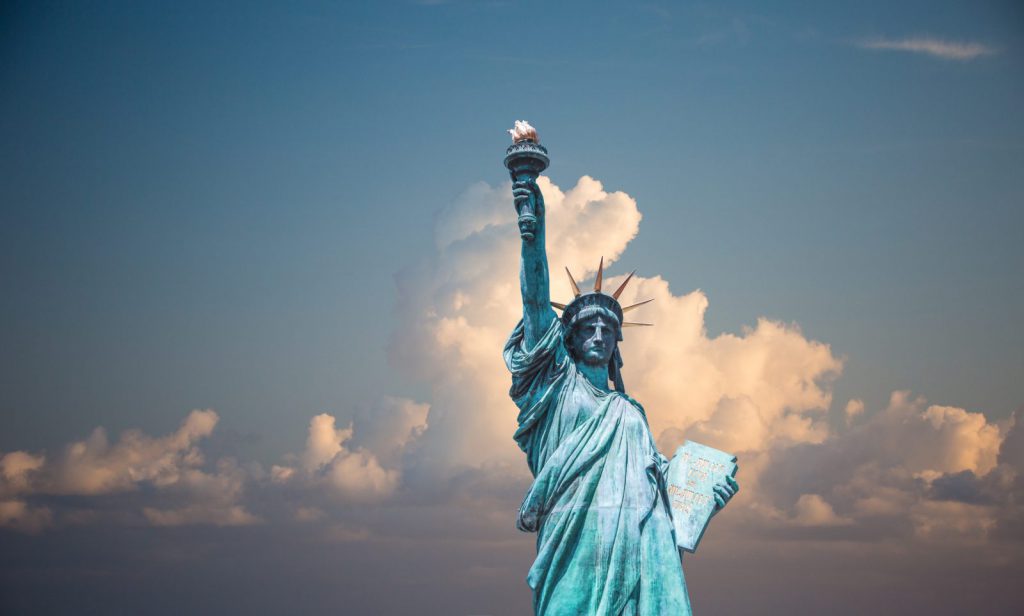
Published May 11, 2018
National Review - May 14, 2018 issue
Review: Suicide of the West: How the Rebirth of Tribalism, Populism, Nationalism, and Identity Politics Is Destroying American Democracy, by Jonah Goldberg (Crown Forum, 464 pp., $28)
The great philosopher of freedom Friedrich Hayek always denied that he was a conservative. He was surely right in part. Conservatism is about much more than freedom. But his denials were also rooted in an understanding of conservatism as blood-and-soil European reactionism, and Hayek in fact frequently gave voice to some core truths of our rather different Anglo-American conservatism. This was the case with the opening words of Hayek’s magnum opus, The Constitution of Liberty. “If old truths are to retain their hold on men’s minds,” Hayek wrote, “they must be restated in the language and concepts of successive generations.”
This is often exactly the task of the conservative — to restate old truths and reassert their relevance by helping a new generation understand them in its own terms. It is a vital cause not only because conservatives believe that old truths remain true but also because we think that human nature does not change, and therefore that every generation — because it starts from scratch — must be helped to see what our civilization has learned through countless rounds of painful trial and error.
But conservatives are too rarely up to the task Hayek lays out. We often stop with the need to restate old truths. Putting them in the language and concepts of a new generation — by connecting them to today’s circumstances and by actually speaking in the language of the culture — presents the greater part of the challenge.
No conservative has risen to this crucial facet of the challenge better in our time than Jonah Goldberg. And this has nowhere been more apparent than in Goldberg’s rich and engaging new book, Suicide of the West. As he did in his first book, Liberal Fascism (2008), Goldberg clothes a deep, sophisticated, and heavily researched historical and philosophical argument in the garb of cultural commentary, engaging humor, and an accessible style. The result is extremely effective, even if (more even than in that earlier book) it might be done a disservice by an excessively grim title.
Goldberg borrows his title from James Burnham’s 1964 classic of the same name. And his book shares with Burnham’s the view that the only way the West could be robbed of its strength is by a loss of confidence in its own civilization — a loss that seems, alas, to be under way. But Goldberg is ultimately more hopeful than Burnham was that such a loss can be averted or reversed.
In fact, for all the gloom that pervades Burnham’s brilliant book, reading it today is not a bad way to grasp the roots of Goldberg’s hope. Burnham assumed the latter half of the 20th century would go far worse for the West than it did. In the mid 1960s, he could hardly have imagined that all-out victory in the Cold War would come 30 years after he wrote. Renewal is possible, even if it is destined to be partial and temporary.
And yet here we are, 30 years after the Cold War did end, and the West again faces what feels like an existential crisis of confidence and finds the foundations of capitalism and liberal democracy questioned not just by an unusually broad spectrum of intellectuals but also by a surprisingly broad swath of the public. Thirty years is roughly the length of a generation, and so, not by coincidence, it is just enough time for intellectual and moral renewal or for intellectual and moral exhaustion. This is good news and bad news. It means the work never ends, but also that it is worth doing.
This core conservative truth is the central theme of Goldberg’s book. He argues that if each generation is not reminded of what it has inherited and why it is worth treasuring, then it will forget, and the wellsprings of our strength will dry up. And so he goes about the work of reminding us, and does so masterfully, and in the language and concepts of the present.
At the heart of his story is what Goldberg calls “the Miracle”: the utterly unprecedented explosion of wealth and freedom that accompanied the emergence of liberal-democratic political arrangements and capitalist economic arrangements in modern Europe and America. The Miracle was rooted in the traditions of the West, and especially in its Christian culture (though Goldberg treads lightly around religion). And it was rooted in some key insights of the Enlightenment. Those traditions and those insights are in some tension with each other, but it’s a tension that has been on the whole constructive for us.
We take the Miracle for granted, but it is a social achievement and not a natural fact. It has happened only once. It runs against the grain of human nature and against the political instincts of almost all societies in all times. And it also always faces internal opposition from the forces of a reactionary romanticism that imagines itself progressive but yearns for the recovery of a mostly imaginary state of unity and fulfillment before capitalism.
Goldberg carefully lays out a multifaceted argument about the roots of the Miracle, the preconditions for its emergence and its maintenance, its accomplishments, and the dangers it always confronts. Folded into this argument is a case about the distinctly American contributions to the Miracle (especially our constitutionalism), and the distinctly American threats it confronts (especially political progressivism and our intensely Romantic popular culture).
For all its achievements, the Miracle is very vulnerable to these Romantic critics, Goldberg argues, precisely because it doesn’t come naturally. Liberal-democratic theory managed to loosen the stranglehold of tribalism but not to erase its appeal. And while “capitalism is the most cooperative system ever created for the peaceful improvement of peoples’ lives,” he writes, “it has only a single fatal flaw: It doesn’t feel like it.” This is why keeping the Miracle alive requires such an intense and continuous educational effort. “When we fail to properly civilize people, human nature rushes in.” This rushing in of nature — which Goldberg aptly terms corruption — is a danger to the future of the West far greater than any foreign adversary could hope to pose.
In its simplest form, this battle between the defenders of the Miracle and its Romantic critics maps onto the battle between the Right and the Left in our politics. But things are not always that simple, and they are certainly not that simple today. In our time, Goldberg argues, the mindset of the Left has invaded the thinking of the Right, so that our politics has become a struggle between two angry, populist romanticisms, while the defense of the Miracle — of constitutionalism, liberal democracy, and capitalism — has been largely abandoned. “Progressivism, in other words, conjured a nationalist backlash that is less an alternative to the statism of the left and more a right-wing version of it.”
Goldberg’s discussion of how this came to be is immeasurably strengthened by its proper sense of perspective about Donald Trump. While he is harshly (and rightly) critical of Trump in the book, as in his other work, Goldberg treats Trump more as one symptom of the process he describes than as a fundamental source of the problem. This enables him to look deeper into the sources of our confusion and forgetfulness, and to see past today’s hysteria to a more coherent if not much less alarming worry.
At the heart of what worries him is our ingratitude for our inheritance — for the Miracle. And by his emphasis on ingratitude as the threat to the West, Goldberg highlights the links between his argument and the core of the Anglo-American conservative intellectual tradition. He sees precisely what Edmund Burke saw in the arrogant presumption of the French Revolution. “Ingratitude is indeed their four cardinal virtues compacted and amalgamated into one,” Burke wrote of the radicals. And Goldberg sees the same force at work in the self-destructive tendencies of our own political moment. As he writes: “Simply put, cultures that do not cherish their best selves die by their own hand. We protect what we are grateful for. That which we resent, we leave out for the trash man or let rot and decay in the elements, as the termites of human nature gnaw away at it. Ingratitude is the spirit that inebriates us with despair and, in our dark moments, makes suicide seem heroic.”
And ingratitude, he argues, is the spirit of our age, on the left and right alike. This is why the task of restoration must be a labor of love, and why its character must be fundamentally intellectual. Taking up the terms of Deirdre McCloskey, Goldberg suggests that we can protect the Miracle only by making the case for it. We are essentially called to the task of argument. “Our civilization, like every civilization, is a conversation,” he suggests. “Therefore the demise of our civilization is only inevitable if the people saying and arguing the right things stop talking.”
That we have to take up this fight again, that the Left keeps coming at American constitutionalism and capitalism and that even on the right these achievements now find themselves under assault, is hardly unfair. Nor should it be (as it has been for too many conservatives) a cause for despair. On this front, too, Goldberg offers a basic conservative insight: “There are no permanent victories. The only victory worth fighting for — because it is the only victory that is achievable — is to hand off this civilization to the next generation and to equip that generation to carry on the fight and so on, and forever.”
This is not just the only success we should expect. It is also a kind of success well worth fighting for and treasuring. And it requires a willingness to make the case, again and again, with energy and verve, with style and good humor, even in the face of setbacks and especially in times when (as today, unfortunately) the argument falls out of fashion among many who should be its foremost champions.
This is the project that Jonah Goldberg has taken on, and the spirit in which he has pursued it for years. Suicide of the West embodies that project and that spirit. More than any book published so far in this century, it deserves to be called a conservative classic.
Yuval Levin is the editor of National Affairs and a fellow at the Ethics and Public Policy Center.








